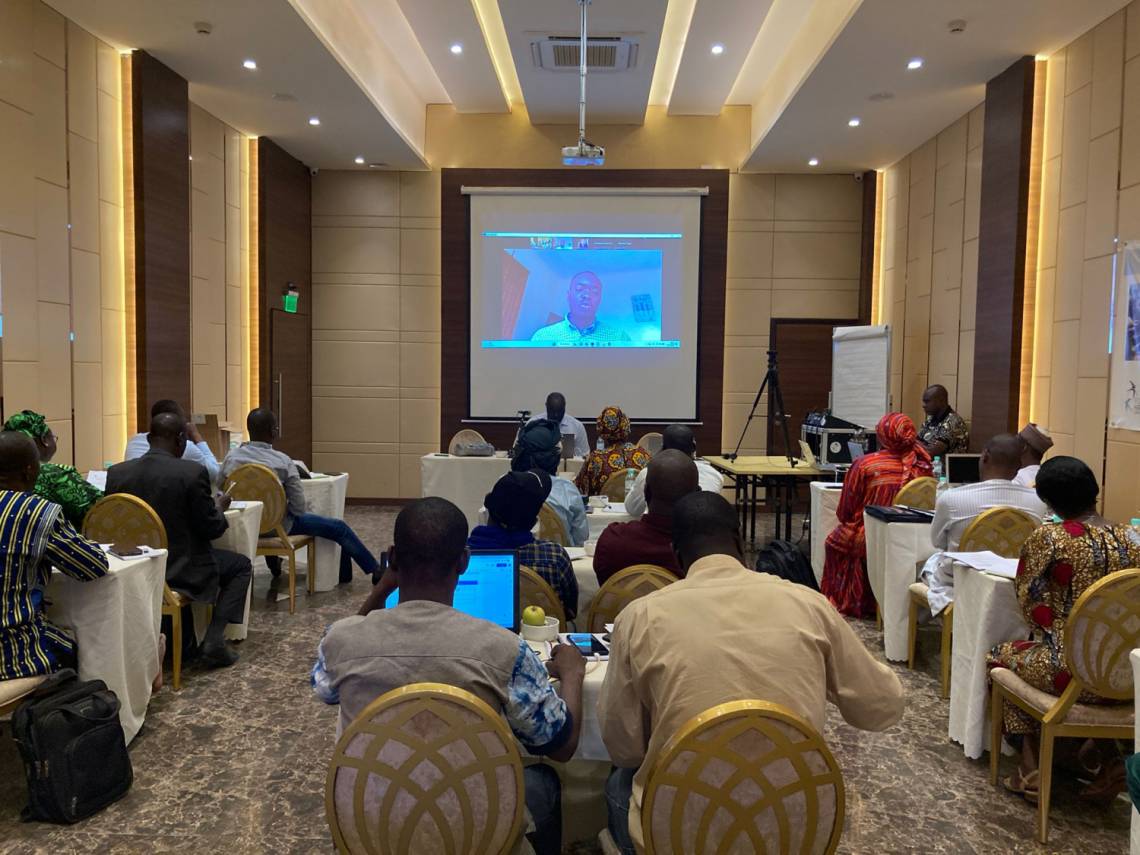Strengthening the constructive role of the West African media in the prevention of conflict and violent extremism was the objective of the second training session delivered last week by the Hirondelle Foundation in Burkina Faso. A group of 25 journalists from all media continued the training cycle initiated in 2022 on the production of sensitive content and operational management in areas affected by violent extremism.
In areas affected or threatened by violent extremism, the media can play a role in prevention or reconciliation. With the threat of terrorism hanging over the Sahel, the training of journalists and media professionals is crucial. To this end, Fondation Hirondelle has set up the "Prevention of Violence and the Media" training cycle, financed by the Swiss Federal Department of Foreign Affairs.
This one-year course brings together a group of 25 professional journalists, including seven women, for four one-week training sessions. The participants come from seven countries in the sub-region (Mali, Niger, Burkina Faso, Guinea, Côte d'Ivoire, Togo and Benin) and share certain similarities in their contexts of intervention, notably around the pressure exerted by violent extremist groups. Most of them work in radio stations, the most widely followed media in these contexts, but representatives from the press and television are also part of the staff.
The first part of this training, entitled "Challenges for Peace Journalism in Crises - Accountability and Public Service to the Public", took place at the end of last year. It aimed to provide participants with a wide range of tools for contextual analysis and understanding of the situation, including security aspects and the role that the media can play in such contexts. Experts and media professionals from across the continent shared their research, provided advice and addressed participants' concerns.
The second part of the training, held last week in Ouagadougou, was more practical. This session was based on the daily experiences of journalists with concrete tools. Each day was devoted to a specific theme: ethics and deontology, psychological preparation, trauma management, and practical tools and methods for managers. This pedagogical organisation generated real emulation, debate and sharing of experiences within the group.
The participants left with production sheets highlighting the concepts and tools discussed during the week. They will have to put these new production tools into practice in their respective essays. The results will be evaluated this summer during the 3rd training session.




